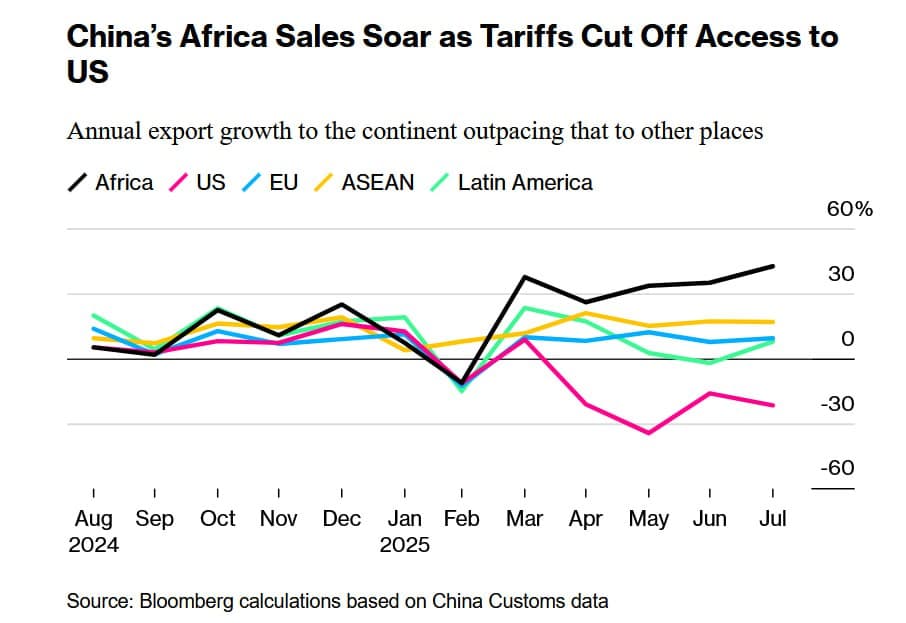Indian automakers are ramping up production in Africa to avoid hefty U.S. tariffs that can reach as high as 50%. This strategic shift comes as major firms like Mahindra and Tata re-enter markets in South Africa, responding to soaring demand for affordable vehicles.
With combined trade between China and Africa surpassing $200 billion, the automotive sector is thriving. Nearly 200,000 budget vehicles from India and China are being shipped to South Africa, where local consumers are increasingly opting for cost-effective options amid a stagnant economy. Mahindra plans to increase its local production capacity by two-thirds, while Tata has resumed operations after a prolonged absence.
However, not all manufacturers are thriving. Ford announced this week it will cut nearly 500 jobs due to declining sales, a trend mirrored by other companies like Mercedes-Benz and BMW operating in the region. As the automotive landscape shifts, South Africa is actively seeking new investments and stronger trade partnerships.
In a twist, South Africa may need to consider implementing tariffs similar to those imposed by the previous U.S. administration to protect its local industry. This situation highlights the complexities of international trade and the ongoing impacts of U.S. tariff policies on global markets, as previously reported in related coverage.







![[Video] Gunfire between Iraqi security forces and Sadr militias in Baghdad](/_next/image?url=%2Fapi%2Fimage%2Fthumbnails%2Fthumbnail-1768343508874-4redb-thumbnail.jpg&w=3840&q=75)
